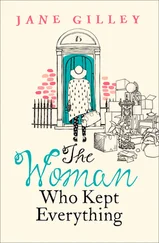Grant Allen - The Woman Who Did
Здесь есть возможность читать онлайн «Grant Allen - The Woman Who Did» — ознакомительный отрывок электронной книги совершенно бесплатно, а после прочтения отрывка купить полную версию. В некоторых случаях можно слушать аудио, скачать через торрент в формате fb2 и присутствует краткое содержание. Жанр: foreign_prose, literature_19, foreign_antique, на английском языке. Описание произведения, (предисловие) а так же отзывы посетителей доступны на портале библиотеки ЛибКат.
- Название:The Woman Who Did
- Автор:
- Жанр:
- Год:неизвестен
- ISBN:нет данных
- Рейтинг книги:3 / 5. Голосов: 1
-
Избранное:Добавить в избранное
- Отзывы:
-
Ваша оценка:
- 60
- 1
- 2
- 3
- 4
- 5
The Woman Who Did: краткое содержание, описание и аннотация
Предлагаем к чтению аннотацию, описание, краткое содержание или предисловие (зависит от того, что написал сам автор книги «The Woman Who Did»). Если вы не нашли необходимую информацию о книге — напишите в комментариях, мы постараемся отыскать её.
The Woman Who Did — читать онлайн ознакомительный отрывок
Ниже представлен текст книги, разбитый по страницам. Система сохранения места последней прочитанной страницы, позволяет с удобством читать онлайн бесплатно книгу «The Woman Who Did», без необходимости каждый раз заново искать на чём Вы остановились. Поставьте закладку, и сможете в любой момент перейти на страницу, на которой закончили чтение.
Интервал:
Закладка:
Herminia brought back her eyes from infinity to his face. "That's true," she said frankly. "The magic link of sex that severs and unites us makes all the difference. And, indeed, I confess I wouldn't so have spoken of my inmost feelings to another woman."
III
From that day forth, Alan and Herminia met frequently. Alan was given to sketching, and he sketched a great deal in his idle times on the common. He translated the cottages from real estate into poetry. On such occasions, Herminia's walks often led her in the same direction. For Herminia was frank; she liked the young man, and, the truth having made her free, she knew no reason why she should avoid or pretend to avoid his company. She had no fear of that sordid impersonal goddess who rules Philistia; it mattered not to her what "people said," or whether or not they said anything about her. "Aiunt: quid aiunt? aiant," was her motto. Could she have known to a certainty that her meetings on the common with Alan Merrick had excited unfavorable comment among the old ladies of Holmwood, the point would have seemed to her unworthy of an emancipated soul's consideration. She could estimate at its true worth the value of all human criticism upon human action.
So, day after day, she met Alan Merrick, half by accident, half by design, on the slopes of the Holmwood. They talked much together, for Alan liked her and understood her. His heart went out to her. Compact of like clay, he knew the meaning of her hopes and aspirations. Often as he sketched he would look up and wait, expecting to catch the faint sound of her light step, or see her lithe figure poised breezy against the sky on the neighboring ridges. Whenever she drew near, his pulse thrilled at her coming,—a somewhat unusual experience with Alan Merrick. For Alan, though a pure soul in his way, and mixed of the finer paste, was not quite like those best of men, who are, so to speak, born married. A man with an innate genius for loving and being loved cannot long remain single. He MUST marry young; or at least, if he does not marry, he must find a companion, a woman to his heart, a help that is meet for him. What is commonly called prudence in such concerns is only another name for vice and cruelty. The purest and best of men necessarily mate themselves before they are twenty. As a rule, it is the selfish, the mean, the calculating, who wait, as they say, "till they can afford to marry." That vile phrase scarcely veils hidden depths of depravity. A man who is really a man, and who has a genius for loving, must love from the very first, and must feel himself surrounded by those who love him. 'Tis the first necessity of life to him; bread, meat, raiment, a house, an income, rank far second to that prime want in the good man's economy.
But Alan Merrick, though an excellent fellow in his way, and of noble fibre, was not quite one of the first, the picked souls of humanity. He did not count among the finger-posts who point the way that mankind will travel. Though Herminia always thought him so. That was her true woman's gift of the highest idealizing power. Indeed, it adds, to my mind, to the tragedy of Herminia Barton's life that the man for whom she risked and lost everything was never quite worthy of her; and that Herminia to the end not once suspected it. Alan was over thirty, and was still "looking about him." That alone, you will admit, is a sufficiently grave condemnation. That a man should have arrived at the ripe age of thirty and not yet have lighted upon the elect lady—the woman without whose companionship life would be to him unendurable is in itself a strong proof of much underlying selfishness, or, what comes to the same thing, of a calculating disposition. The right sort of man doesn't argue with himself at all on these matters. He doesn't say with selfish coldness, "I can't afford a wife;" or, "If I marry now, I shall ruin my prospects." He feels and acts. He mates, like the birds, because he can't help himself. A woman crosses his path who is to him indispensable, a part of himself, the needful complement of his own personality; and without heed or hesitation he takes her to himself, lawfully or unlawfully, because he has need of her. That is how nature has made us; that is how every man worthy of the name of man has always felt, and thought, and acted. The worst of all possible and conceivable checks upon population is the vile one which Malthus glossed over as "the prudential," and which consists in substituting prostitution for marriage through the spring-tide of one's manhood.
Alan Merrick, however, was over thirty and still unmarried. More than that, he was heart-free,—a very evil record. And, like most other unmarried men of thirty, he was a trifle fastidious. He was "looking about him." That means to say, he was waiting to find some woman who suited him. No man does so at twenty. He sees and loves. But Alan Merrick, having let slip the golden moment when nature prompts every growing youth to fling himself with pure devotion at the feet of the first good angel who happens to cross his path and attract his worship, had now outlived the early flush of pure passion, and was thinking only of "comfortably settling himself." In one word, when a man is young, he asks himself with a thrill what he can do to make happy this sweet soul he loves; when he has let that critical moment flow by him unseized, he asks only, in cold blood, what woman will most agreeably make life run smooth for him. The first stage is pure love; the second, pure selfishness.
Still, Alan Merrick was now "getting on in his profession," and, as people said, it was high time he should be settled. They said it as they might have said it was high time he should take a business partner. From that lowest depth of emotional disgrace Herminia Barton was to preserve him. It was her task in life, though she knew it not, to save Alan Merrick's soul. And nobly she saved it.
Alan, "looking about him," with some fine qualities of nature underlying in the background that mean social philosophy of the class from which he sprang, fell frankly in love almost at first sight with Herminia. He admired and respected her. More than that, he understood her. She had power in her purity to raise his nature for a time to something approaching her own high level. True woman has the real Midas gift: all that she touches turns to purest gold. Seeing Herminia much and talking with her, Alan could not fail to be impressed with the idea that here was a soul which could do a great deal more for him than "make him comfortable,"—which could raise him to moral heights he had hardly yet dreamt of,—which could wake in him the best of which he was capable. And watching her thus, he soon fell in love with her, as few men of thirty are able to fall in love for the first time,—as the young man falls in love, with the unselfish energy of an unspoilt nature. He asked no longer whether Herminia was the sort of girl who could make him comfortable; he asked only, with that delicious tremor of self-distrust which belongs to naive youth, whether he dare offer himself to one so pure and good and beautiful. And his hesitation was justified; for our sordid England has not brought forth many such serene and single-minded souls as Herminia Barton.
At last one afternoon they had climbed together the steep red face of the sandy slope that rises abruptly from the Holmwood towards Leith Hill, by the Robin Gate entrance. Near the top, they had seated themselves on a carpet of sheep-sorrel, looking out across the imperturbable expanse of the Weald, and the broad pastures of Sussex. A solemn blue haze brooded soft over the land. The sun was sinking low; oblique afternoon lights flooded the distant South Downs. Their combes came out aslant in saucer-shaped shadows. Alan turned and gazed at Herminia; she was hot with climbing, and her calm face was flushed. A town-bred girl would have looked red and blowsy; but the color and the exertion just suited Herminia. On that healthy brown cheek it seemed natural to discern the visible marks of effort. Alan gazed at her with a sudden rush of untrammelled feeling. The elusive outline of her grave sweet face, the wistful eyes, the ripe red mouth enticed him. "Oh, Herminia," he cried, calling her for the first time by her Christian name alone, "how glad I am I happened to go that afternoon to Mrs. Dewsbury's. For otherwise perhaps I might never have known you."
Читать дальшеИнтервал:
Закладка:
Похожие книги на «The Woman Who Did»
Представляем Вашему вниманию похожие книги на «The Woman Who Did» списком для выбора. Мы отобрали схожую по названию и смыслу литературу в надежде предоставить читателям больше вариантов отыскать новые, интересные, ещё непрочитанные произведения.
Обсуждение, отзывы о книге «The Woman Who Did» и просто собственные мнения читателей. Оставьте ваши комментарии, напишите, что Вы думаете о произведении, его смысле или главных героях. Укажите что конкретно понравилось, а что нет, и почему Вы так считаете.












